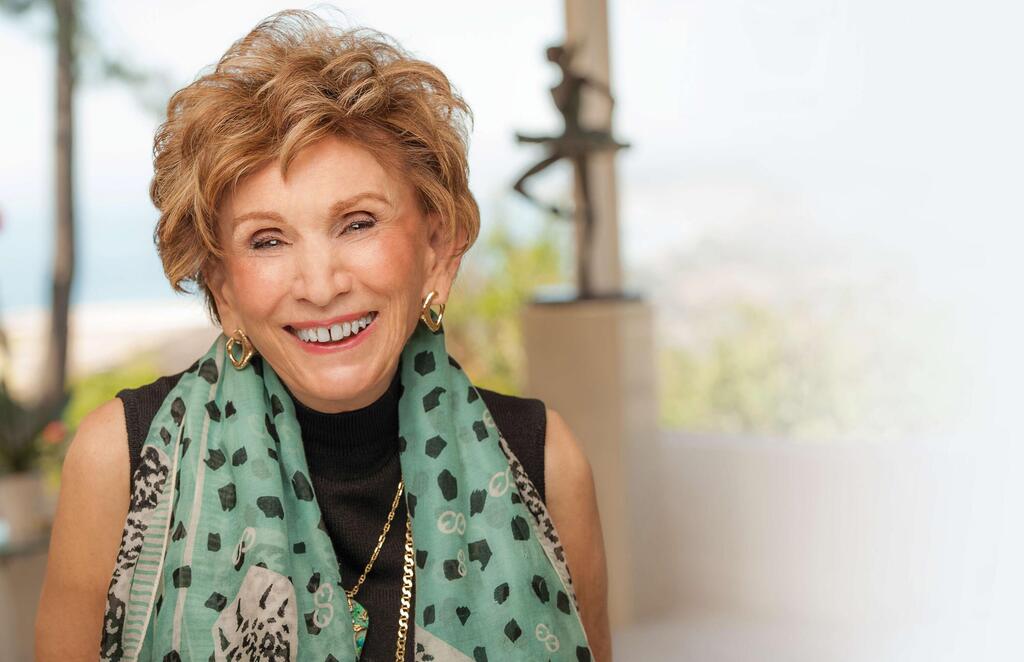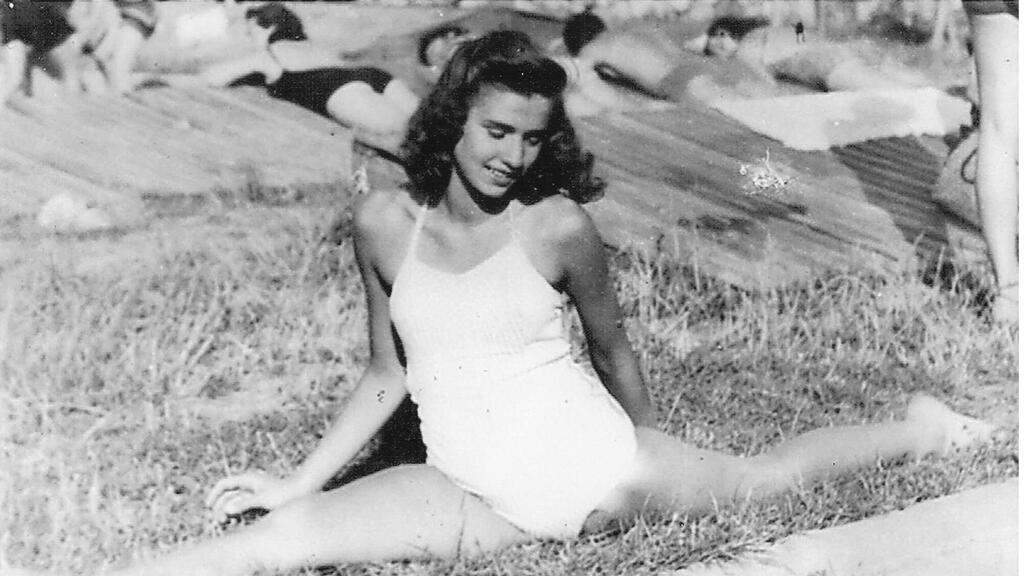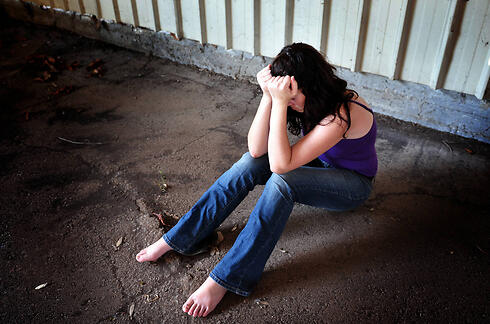Dr. Edith Eger, a Hungarian-born American clinical psychologist, was 63 years old when she returned to visit the Auschwitz concentration camp, where she had survived in her youth. This visit led her to truly understand her place in life.
More stories:
“It wasn’t until decades later, when I was finishing my training as a clinical psychologist, that I realized the cost of my double life. I was trying to heal others without healing myself. I was an impostor. On the outside, I was a doctor. On the inside, a terrified sixteen-year-old was quaking, cloaked in denial, over-achievement, and perfectionism. Until I could face the truth, I had my secret, and my secret had me.”
Today, at the age of 95, following the success of her bestselling book The Choice, in which she unfolded the moving story of her life and how she survived Auschwitz and built a new life in the United States, she sees in sharing her messages her life mission. True liberation, she argues, is from the prison we create within our minds.
"I am here to tell you that the worst prison is not the one the Nazis put me in. The worst prison is the one I built for myself," Dr. Eger writes. Although our lives have probably been very different, perhaps you know what I mean. Many of us experience feeling trapped in our minds. Our thoughts and beliefs determine, and often limit, how we feel, what we do, and what we think is possible.
In my work I’ve discovered that while our imprisoning beliefs show up and play out in unique ways, there are some common mental prisons that contribute to suffering. This book is a practical guide to help us identify our mental prisons and develop the tools we need to become free."
Dr. Eger, known as "Dr. Mengele's little dancer," referring to the Nazi war criminal who conducted cruel experiments in Auschwitz, says that the foundation for our freedom is our ability to choose. Therefore, she refers to the method she developed as choice therapy.
"I call it choice therapy, as freedom is fundamentally about choice. While suffering is inevitable and universal, we can always choose how we respond, and I seek to highlight and harness my patients’ power to choose—to effect positive change in their lives."
Mengele's little dancer
At the age of 16, on her first evening in Auschwitz, just hours after her parents were killed in the gas chambers, Dr. Josef Mengele forced Edith Eger to dance before him for his own amusement. She does so in order to survive, to the sounds of The Blue Danube playing. While dancing, she recounts in her autobiographical book The Choice an enlightening and comforting realization that dawns upon her.
"[W]hile Mengele had all the power, while day after day he chose with his grotesquely wagging finger who would live and who would die, he was more a prisoner than I was. I was innocent. And free."
However, surviving Auschwitz, from which she was liberated together with her sister Magda, was only the first step in her journey toward freedom. According to her, for decades she remained a prisoner of the past.
On the face of it, she managed to leave the trauma behind and move on. She married Béla, a partisan who fought against the Nazis, and immigrated together with him and their daughter to the United States, and in the 1940s, she pursued education, attending college, teaching at a high school and continuing her studies for a master's degree in educational psychology and a doctorate in clinical psychology.
But the real change, in her words, came as a result of her encounter with the teachings of Viktor Frankl, which led her to revisit Auschwitz, fully expose her personal story and develop an intuitive therapeutic method that emphasizes the importance of our choices in life.
Throughout her extensive career, she taught and lectured, gave TED talks, treated individuals and couples, including war veterans and survivors of physical and psychological trauma, and trained hundreds of therapists in her methods.
"I used to ask, 'Why me?' But now I ask, 'Why not me?' Perhaps I survived so I can choose what to do with what happened, and how to be here now. So I can show others how to choose life, so my parents and all the innocents didn’t die in vain. So I can turn all the lessons I learned in hell into a gift I offer you now: the opportunity to decide what kind of life you want to have, to discover the untapped potential lying in the shadows, to reveal and reclaim who you really are," she writes.
"Honey, may you also choose to give up the prison and do the work to be free. To find in your suffering your own life lessons. To choose which legacy the world inherits. To hand down the pain—or to pass on the gift."
Here are four psychological prisons that Dr. Eger refers to in her book, detailing how to break free from them:
The Prison of Victimhood: Stop looking whom to blame
"Many of us stay in a prison of victimhood because, subconsciously, it feels safer. We ask 'Why?' over and over, believing that if we could just figure out the reason, the pain would lessen. Why did I get cancer? Why did I lose my job? Why did my partner have an affair? We search for answers, for understanding, as if there’s a logical reason to explain why things happened the way they did. But when we ask why, we’re stuck searching for someone or something to blame— including ourselves. Why did this happen to me? Well, why not you?
"This is the first tool for moving out of victimhood: approach whatever is happening with a gentle embrace. It doesn’t mean you have to like what’s happening. But when you stop fighting and resisting, you have more energy and imagination at the ready to figure out 'What now?' To move forward instead of nowhere. To discover what you want and need in this moment, and where you want to go from here."
She adds, "The prison of victimhood often gets established in childhood, and even when we’re adults, it can keep us feeling as powerless as we did when we were young. We can release ourselves from victimhood by helping that inner child feel safe, and by letting her experience the world with an adult’s autonomy."
And another tip
"Write a letter to a person or situation that has caused you pain, recently or in the past. Be specific about what the person did, or about what happened that you didn’t like. Put it all on the table. Say how the actions, words, or events affected you. Then write another letter to the same person or situation—but this time write a thank-you letter, expressing gratitude for what the person has taught you about yourself or how the situation has prompted you to grow.
The goal of the thank-you letter is not to pretend to like something you didn’t like, or to force yourself to be happy about something painful. Acknowledge that what happened wasn’t right and that it hurt. And also notice the healing power in shift ing your point of view from a powerless victim to who you really are: a survivor, a person of strength."
The Prison of Guilt and Shame: You are worthy
"Like many survivors, in the years after the war I’d grappled with crippling guilt. It had been twenty-four years since my sister Magda and I were liberated. But I still couldn’t understand why I had lived when my parents and grandparents and six million others had perished.
Even an occasion of celebration and accomplishment was tainted by my certainty that I was damaged goods, unworthy of joy, that every bad thing was somehow my fault, that it was only a matter of time before everyone discovered how broken I was."
Eger adds that "guilt keeps you stuck. It’s rooted in shame—when you believe 'I’m not worthy'; when you think that you’re not enough, that nothing is enough, no matter what you do. Guilt and shame can be extremely debilitating. But they’re not real assessments of who we are. They’re a pattern of thought that we choose and get stuck in."
How to break free?
"FREEDOM LIES IN ACCEPTING OUR WHOLE, IMPERFECT SELVES AND GIVING UP THE NEED FOR PERFECTION.
But we’re human, no more, no less, and human means fallible. Freedom lies in accepting our whole, imperfect selves and giving up the need for perfection."
And another tip
"What you pay attention to grows stronger. Spend a day listening to your self-talk. Is it full of 'I should,' 'I shouldn’t,' and 'yes, but'? Do you tell yourself, 'It’s my fault,' or 'I don’t deserve it,' or 'It could have been worse'?
Replace these messages of guilt or shame with a daily practice of kind and loving self-talk. As soon as you wake up in the morning, go to the mirror and look at yourself with loving eyes. Say, 'I’m powerful. I’m kind. I’m a person of strength.' then kiss yourself on the back of each hand. Smile at yourself in the mirror. Say, 'I love you'."
The Prison of Rigidity: You don't always have to be right
"The prison bars of rigid thinking can be hard to recognize because they’re often gilded in good intentions. Many people seek me out for therapy because they want to improve their relationships—to find a better way to communicate with their partners or children, to have more peace and intimacy.
But often I discover that they’re not in therapy to learn how to negotiate conflict; they want my help in convincing others to conform to their point of view. If you come in with an agenda, if you’re keeping score or trying to change someone else, then you’re not free. Freedom is when you embrace your power to choose your own response."
How to break free?
"Flexibility is strength. I learned it when I was training as a gymnast, and it’s why I go swing dancing as often as my body can handle, why I end each speech with a high kick. And it’s true for the psyche as well as for the body. You’re strong when you’re supple and limber. So get up each morning and stretch. Develop the mental range of motion that keeps you free."
And another tip
"Give a gentle embrace. Choose a current challenge in your life—an injury or physical ailment, an ongoing tension or conflict, or any circumstance that has you feeling restricted, limited, or confined. Start by speaking your truth. What don’t you like about it? How does it make you feel? Then get curious. Ask, 'What is this situation telling me? What’s in my best interest? What serves and empowers me now?'"
The Prison of Paralyzing Fear: It takes courage being average
"Fear uses the most insistent, relentless, provocative words: what if, what if, what if? When fear comes like a panic storm, and your body shakes and your heart races and the trauma you already survived threatens to swallow you, take your own precious hand and say, 'Thank you, fear, for wanting to protect me.'
When we’ve been hurt or betrayed, it isn’t easy to let go of the fear that we’ll be hurt again. Fear’s favorite words are 'I told you so.' I told you you’d regret it. I told you it was too risky. I told you it wouldn’t turn out well. And we hate to disappoint our hunches. We hold on to fear, thinking vigilance will protect us, but fear becomes a relentless cycle, a self-fulfilling prophecy. A better protection against suffering is to know how to love and forgive yourself, to be safe for yourself, to not punish yourself for the mistakes and hurt and pain that are inevitable parts of life.
In America, the slang term for a psychologist is shrink. But I like to call myself a stretch! To meet survivor to survivor, and guide you to release your self-limiting beliefs and embrace your potential."
How to break free?
"We aren’t born with fear. Somewhere along the way, we learn it... Often the emotional responses that get ingrained in us aren’t even our own—they’re ones we’ve learned from watching others. So you can ask yourself, 'Is this my fear? Or someone else’s?' If the fear really belongs to your mother or father or grandparent or spouse, you don’t have to carry it anymore. Just put it down. Release your hold. Leave it behind."
And another tip
"Change is synonymous with growth. Do one thing differently today than you did yesterday. If you always drive the same way to work, take a different route—or ride your bike or take a bus. If you’re usually too rushed or preoccupied to chat with the checker at the grocery store, try making eye contact and conversation
These small steps might seem inconsequential, but they actually train your brain to know that you’re capable of change, that nothing is locked in stone, that your choices and possibilities are endless."







